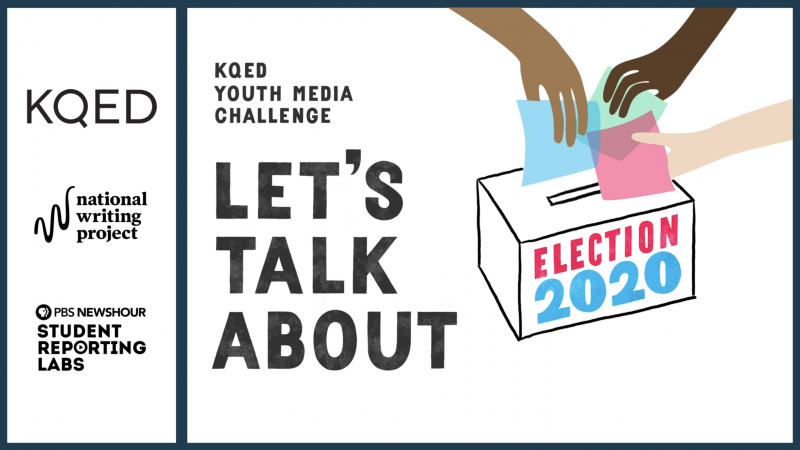This is part one of our three part Election 2020 student content blog series. See part two and part three.
Election 2020 is only a few months away. And while COVID-19, school closures and police violence protests almost make the election seem like below-the-fold news, teens from around the country know that every vote counts. While most teens are too young to vote, they aren’t too young to make their voices heard. That’s why nearly 200 students have already contributed to KQED’s Let’s Talk About Election 2020 Youth Media Challenge. The challenge is open through the inauguration in January 2021.
Each audio or video commentary is published on KQED Learn’s public showcase, and KQED’s broadcast and digital channels will share select pieces of student work throughout the upcoming election season to let voters know what issues are top of mind for teens.
This media challenge is perfect for distance learning and project-based learning. Students are guided through a step-by-step process to create their own video or audio commentaries. And we’ve created a curricular toolbox for teachers, full of standards-aligned resources and sample lesson sequences.
Watch and listen to these examples to see what students across the country are saying about Election 2020.
